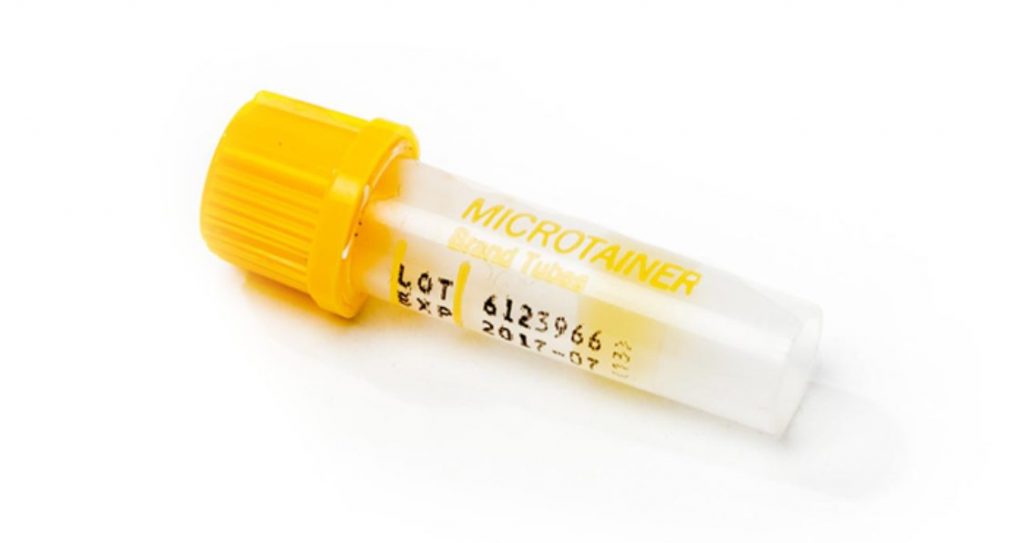Testosterone is Important for Optimal Health
There’s one powerful hormone responsible for the success of many men. This hormone is so powerful that it has the potential to increase your muscle mass, energy, focus, mental health, and yes, even your libido. This potent hormone is none other than testosterone.
Unfortunately, many men suffer from low testosterone levels and don’t know how much you can increase it naturally. Of course, many people know the positive effects sleep and lifting weights have on your testosterone levels, but here are some more hacks that aren’t talked about as much.
Below, find out how you can skyrocket your testosterone.
What is Testosterone?
Testosterone is the primary sex hormone and both men and women produce it, however, men produce more of it. Men mainly produce this anabolic hormone in their testicles, and it’s responsible for male sexual characteristics and stimulates sperm production. It’s also important for improving your sex drive, bone mass, body composition, and red blood cells (1).
If you have low testosterone levels, you’ll likely know because you’ll experience a multitude of symptoms. Below is a list of signs of low testosterone.
Low Testosterone Signs
- Low sex drive
- Erectile dysfunction
- Low semen volume
- Fatigue
- Loss of muscle mass
- Increased body fat
- Irritability
If you experience any of these symptoms, you may be experiencing the effects of low testosterone. Although, there are natural lifestyle changes you can make to rev your T levels back up to your teenage years.
If you’re looking for the best testosterone boosters on the market, make sure to check out our review guide of the best test boosters supplements.
6 Testosterone Boosting Hacks
1. Avoid Doing Too Much Cardio
When many people are trying to lose weight, they aim to increase their cardio sessions. While doing a little bit of cardio has great benefits for your cardiovascular health, doing too much cardio negatively impacts your testosterone.
This 2018 study showed the negative effects on testosterone levels in men who do a lot of endurance training (2).
Another study reported a drop in libido in men who do cardio training too intensely (3).
Instead, do moderate-intensity cardio a few times a week or a short burst of HIIT workouts a couple of times a week. Avoid doing long endurance cardio. Many marathon runners have lower T levels than their weightlifter counterparts.
2. Don’t Do a Strict Calorie Restriction
To lose weight, you’ll need to be in a caloric deficit, of course. However, many people make the mistake of cutting their calories too thin, which not only leads to a loss in muscle and slower metabolism but less testosterone too.
In fact, this study done on men showed that long-term calorie restriction lowers their serum T levels (4).
You’ll want to aim for just a 300-500 calorie deficit for optimal weight loss to maintain high testosterone.
3. Get Some Vitamin D
Vitamin D is something a lot of people are getting less of. That’s because you get vitamin D naturally from the sun and most people spend the majority of their time indoors. This is especially a factor if you live in an area that doesn’t get much sun. However, vitamin D is important for maintaining high T levels.
Research performed on men showed that supplementing with vitamin D increases testosterone (5).
If you’re not able to get outdoors a couple of times a week, supplement with vitamin D and eat foods high in vitamin D, such as salmon, herring, sardines, canned tuna, egg yolks, and mushrooms.
4. Take Creatine
Your body naturally produces creatine, but consuming a little more of it from supplements has its benefits. Not only will you notice an increase in strength and muscle mass, but your testosterone will increase as well.
A study of rugby players demonstrated that supplementing with creatine for 3 weeks has a positive effect on testosterone levels (6).
5. Have Low Body Fat, But Not Too Low
Maintaining a low-level body fat is important if you want to consistently have high testosterone. If you’re obese or overweight, your testosterone is substantially lower (7).
However, you don’t want your body fat to go too low. A little body fat is essential for your health and production of testosterone, and if your body fat gets too low, then you’ll suffer from a decrease in testosterone.
That’s why many bodybuilders before a show report feeling sluggish with a lack of libido.
This study done on bodybuilders show the impact prepping for shows had on their testosterone. Their body fat declined from 14.8% to 4.5%, which lowered their testosterone significantly (8).
For optimal health and testosterone for men, it’s recommended your body fat lies somewhere between 8-20%.
6. Supplement with Ashwagandha for a Testosterone Boost
Ashwagandha is an ancient medicinal herb with multiple health benefits, including an increase in testosterone. As additional bonuses, it also has been reported to ease stress and anxiety, fight depression, and boost brain function.
A 2019 study demonstrated that supplementing with Ashwagandha for 8 weeks significantly increased the testosterone levels of males between the ages 40-70 (9).
Conclusion
Testosterone is an important hormone for both men and women and plays an important role in building muscle, energy, and general wellness. Many people know the benefits lifting weights and sleep have on testosterone, but this article covered other factors that support testosterone that aren’t often talked about.
If you want to keep your testosterone levels high, incorporate these hacks into your lifestyle.
Do you think you have high or low testosterone? Let us know and follow us on Instagram and Facebook.
References
1 – Finkelstein, J. S., Lee, H., Burnett-Bowie, S. A., Pallais, J. C., Yu, E. W., Borges, L. F., Jones, B. F., Barry, C. V., Wulczyn, K. E., Thomas, B. J., & Leder, B. Z. (2013). Gonadal steroids and body composition, strength, and sexual function in men. The New England journal of medicine, 369(11), 1011–1022. https://doi.org/10.1056/NEJMoa120
2 – Hackney, A. C., & Aggon, E. (2018). Chronic Low Testosterone Levels in Endurance Trained Men: The Exercise- Hypogonadal Male Condition. Journal of biochemistry and physiology, 1(1), 103.
3 – Hackney, A. C., Lane, A. R., Register-Mihalik, J., & Oʼleary, C. B. (2017). Endurance Exercise Training and Male Sexual Libido. Medicine and science in sports and exercise, 49(7), 1383–1388. https://doi.org/10.1249/MSS.0000000000001235
4 – Cangemi, R., Friedmann, A. J., Holloszy, J. O., & Fontana, L. (2010). Long-term effects of calorie restriction on serum sex-hormone concentrations in men. Aging cell, 9(2), 236–242. https://doi.org/10.1111/j.1474-9726.2010.00553.x
5 – Pilz, S., Frisch, S., Koertke, H., Kuhn, J., Dreier, J., Obermayer-Pietsch, B., Wehr, E., & Zittermann, A. (2011). Effect of vitamin D supplementation on testosterone levels in men. Hormone and metabolic research = Hormon- und Stoffwechselforschung = Hormones et metabolisme, 43(3), 223–225. https://doi.org/10.1055/s-0030-1269854
References Cont’d
6 – van der Merwe, J., Brooks, N. E., & Myburgh, K. H. (2009). Three weeks of creatine monohydrate supplementation affects dihydrotestosterone to testosterone ratio in college-aged rugby players. Clinical journal of sport medicine : official journal of the Canadian Academy of Sport Medicine, 19(5), 399–404. https://doi.org/10.1097/JSM.0b013e3181b8b52f
7 – Fui, M. N., Dupuis, P., & Grossmann, M. (2014). Lowered testosterone in male obesity: mechanisms, morbidity and management. Asian journal of andrology, 16(2), 223–231. https://doi.org/10.4103/1008-682X.122365
8 – Rossow, L. M., Fukuda, D. H., Fahs, C. A., Loenneke, J. P., & Stout, J. R. (2013). Natural bodybuilding competition preparation and recovery: a 12-month case study. International journal of sports physiology and performance, 8(5), 582–592. https://doi.org/10.1123/ijspp.8.5.582
9 – Lopresti, A. L., Drummond, P. D., & Smith, S. J. (2019). A Randomized, Double-Blind, Placebo-Controlled, Crossover Study Examining the Hormonal and Vitality Effects of Ashwagandha ( Withania somnifera) in Aging, Overweight Males. American journal of men’s health, 13(2), 1557988319835985. https://doi.org/10.1177/1557988319835985










